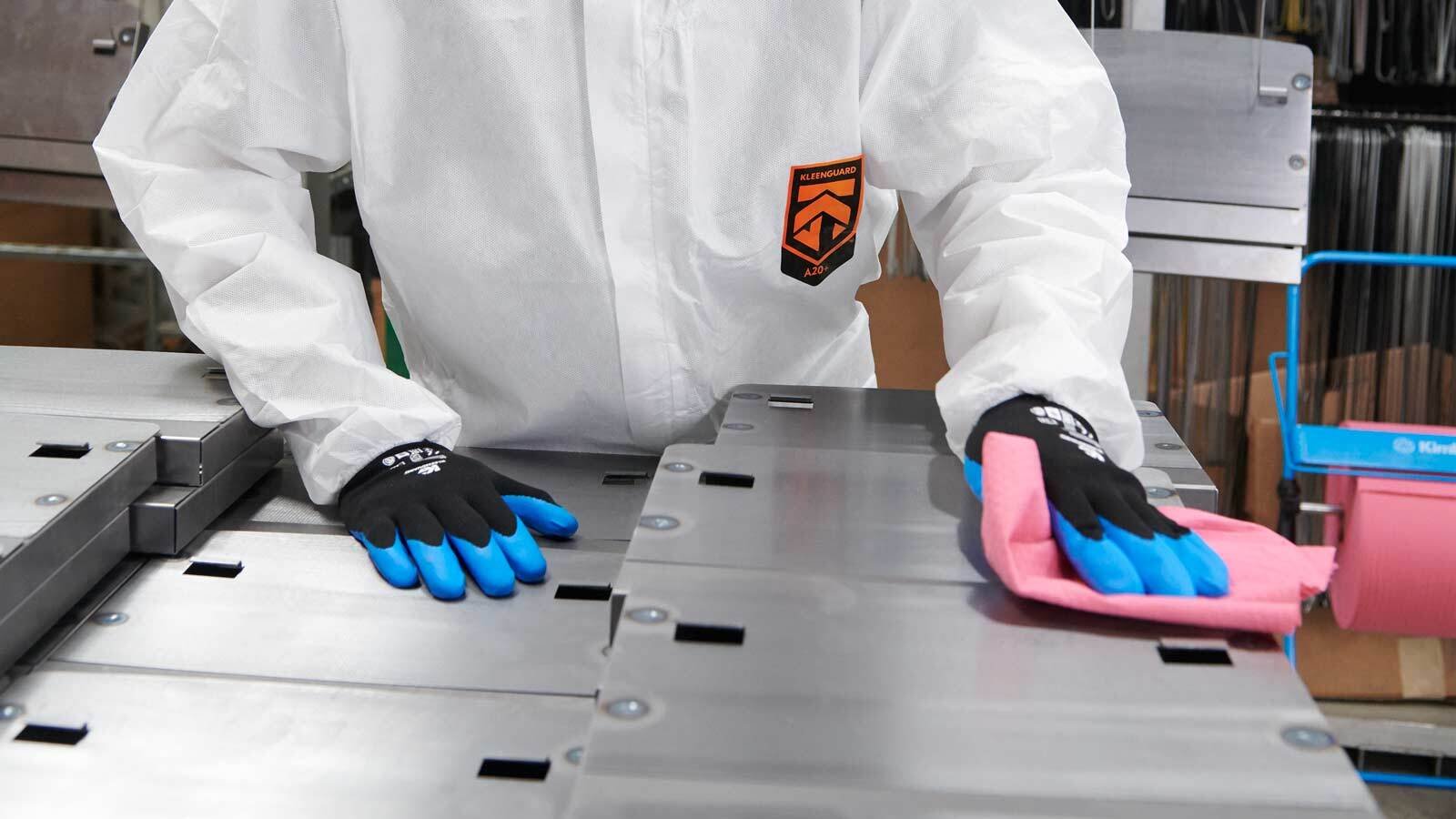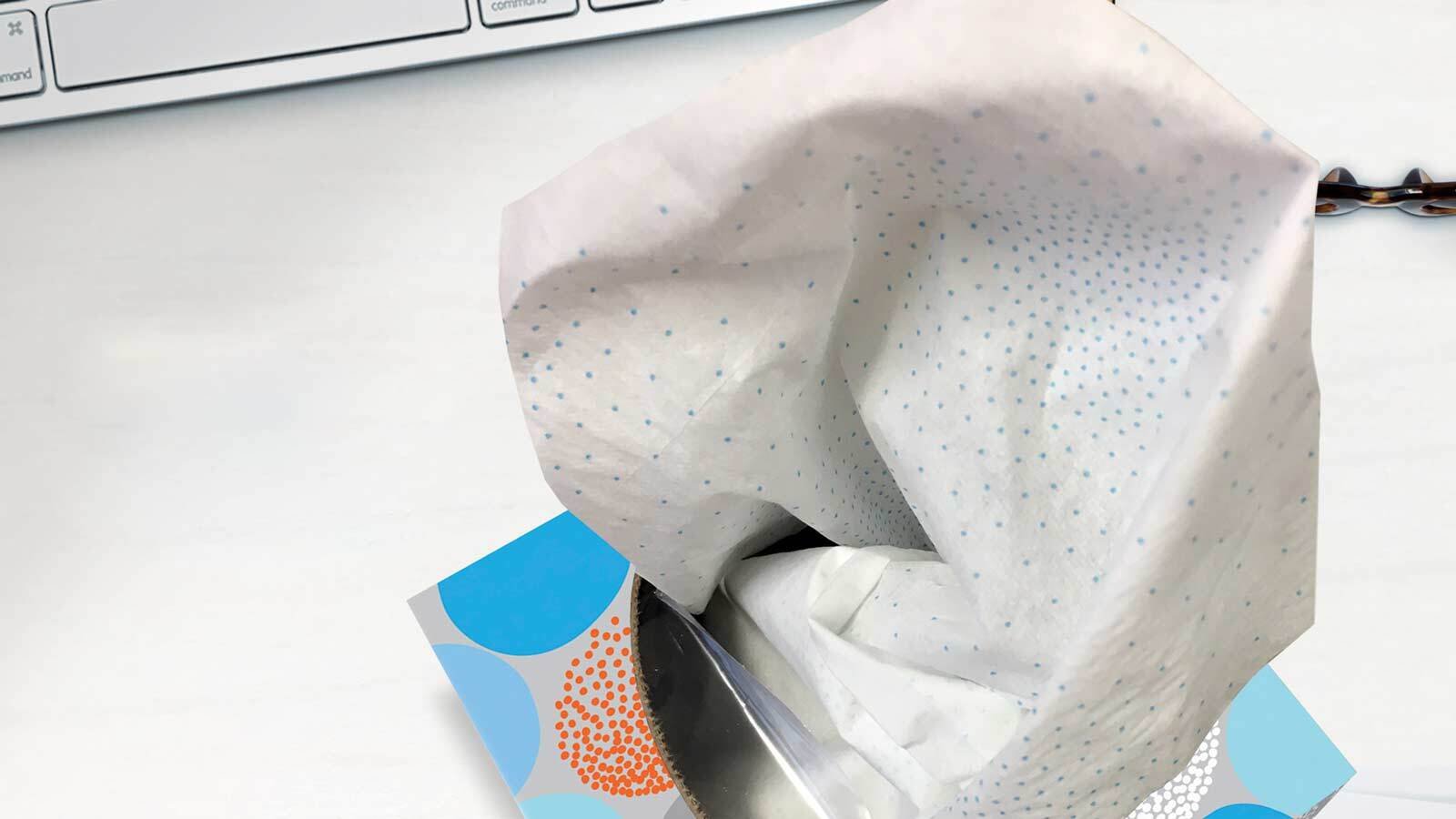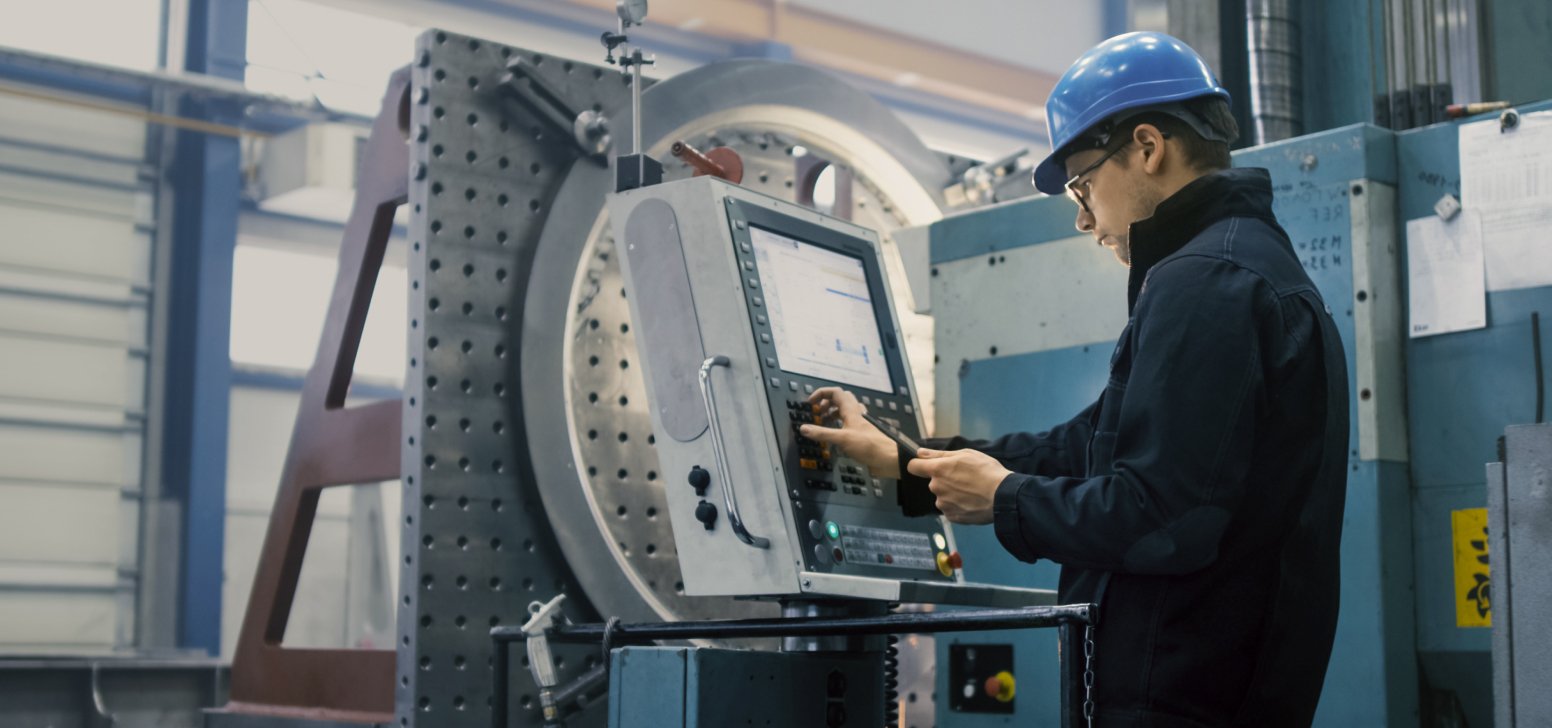Last Updated JULY 2025
Laundered Cloths and Rags vs. Disposable Wipes
When it comes to wiping a surface – whether it’s a counter or machine part – there’s a perception that using a rag or laundered cloth multiple times is less wasteful than using a disposable wipe.

Rags and laundered cloths made of certain material (including recycled clothing) can often complicate instead of improving the manufacturing processes, according to the Kimberly-Clark Professional report “Industrial Wipers: How They Impact Product Quality, Productivity, Worker Health & the Environment.”
Because rags and cloths sometimes leave behind lint, dirt and debris, using them can compromise a manufacturing process and those contaminants can potentially get into the product being manufactured, resulting in rework.
“If anything, rags and laundered cloths increase defects,” said Ankur Gupta, category manager, WypAll® Wipes, at Kimberly-Clark Professional. For instance, rags that have been used to wipe down industrial equipment contain debris like metal shavings and pins.
A 2011 study conducted by Gradient, an environmental and risk science consulting firm, and co-sponsored by Kimberly-Clark Professional found that a worker using up to 12 laundered cloths a day may be exposed to high levels of antimony, beryllium, cadmium, cobalt, copper, lead and molybdenum.
“For goodness' sake, asking people ‘Why do you use a rag?’ is like asking ‘Why would you use a used piece of underwear?’ when you’re doing your work,” Gupta said.
Here are some other reasons why rags and laundered cloths are not as dependable as industrial wipes:
Rags
- Are inconsistent in size, shape and material
- May contain pins, buttons and metal shavings which can lead to scratches and other imperfections on surfaces
- Occupy more storage space in industrial warehouses than disposable wipes
Laundered Cloths
- Can retain lead, a toxic heavy metal, which can cause serious health issues to the worker like elevated blood lead levels and hypertension
- Not engineered for specific applications
- Contribute to landfill waste
Disposable Wipes Are More Efficient Than You Think
Disposable wipes like WypAll® Wipes are absorbent, making it quick to clean a piece of equipment and can reduce machine stoppages.
“When choosers use the right tools, they will ultimately see that they can impact quality, delivery and costs in a much bigger way than they could have imagined,” Gupta said. “Now that’s efficiency.”










